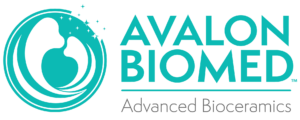ABSTRACT INTRODUCTION:
The aim of this study was to evaluate MTA Plus (Prevest Denpro Limited, Jammu, India, for Avalon Biomed Inc) material’s properties, namely calcium release, the pH change, solubility, water sorption, porosity, surface morphology, and apatiteforming ability after immersion in simulated body fluid.
METHODS:
Two tricalcium silicate powders (MTA Plus and ProRoot MTA; Dentsply Tulsa Specialties, Tulsa, OK) and Dycal (Dentsply Caulk, Milford, DE) were tested. After incubation at 37°C and 99% relative humidity, calcium and hydroxyl ion release were tested up to 28 days in deionized water at 37°C. Water absorption, interconnected pores, apparent porosity, and solubility were measured after 24 hours of immersion in deionized water at 37°C. The morphologic and elemental analysis of the materials’ surfaces were examined using an environmental scanning electron microscope/energy dispersive x-ray analysis after storage at 37°C for 1-28 days in simulated body fluid using the ISO 23317 method.
RESULTS:
All 3 materials created an alkaline pH within 3 hours, which continued for 28 days. MTA Plus had a higher ion release than ProRoot MTA and Dycal; the use of the MTA Plus gel enhanced the initial calcium release and the increase of the pH. Both MTA materials were more porous, water soluble, and water sorptive than Dycal and more bioactive. After aging in simulated body fluid, MTA Plus material caused precipitation of an apparent calcium phosphate layer.
CONCLUSION:
MTA Plus showed improved reactivity and prolonged capability to release calcium and increase the local pH to alkaline values in comparison with ProRoot MTA. These pronounced ion-releasing properties are interlinked with its noticeable porosity, water sorption, and solubility and with the formation of calcium phosphorus minerals. The finer calcium silicate powder may explain the higher ion release, water sorption, porosity, and solubility of MTA Plus compared with ProRoot MTA. For clinicians, MTA Plus represents a lower-cost bioactive tricalcium silicate material with interesting chemicalphysical properties that could be a convenient alternative to the conventional calcium silicate mineral trioxide aggregate-like cements.
